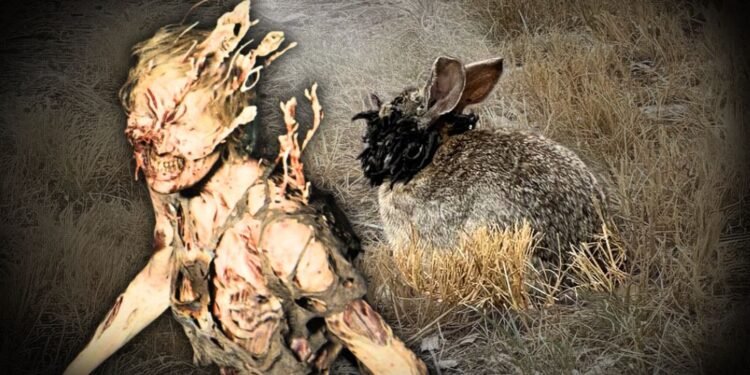If you thought the “Last of Us” nightmare was just for gamers, think again — Colorado’s got its own creepy outbreak.
In Fort Collins, residents are spotting wild rabbits with black, horn-like spikes and tentacle growths sprouting from their heads and faces. These bizarre mutations come from the Shope papilloma virus, a cousin of HPV that spreads through mosquito and tick bites.
While it doesn’t harm humans, it can make rabbits look like they’ve stepped out of a horror cutscene. Wildlife officials are warning locals to keep their distance, because the last thing you want is to star in the sequel.
The Shope papilloma virus triggers wart-like tumors, usually on the head, ears, or eyelids. In severe cases, the growths swell so much they block the animal’s vision or ability to eat. Some can even turn cancerous.
The infected rabbits, mostly wild cottontails, aren’t passing the virus to people or pets — the real carriers are the insects that feed on them and spread it to other rabbits. Outbreaks spike in warmer months when mosquito activity is high, which means these horror-show sightings could continue through the season.
Locals have been shaken by the appearance of these “jackalope”-looking animals, with some initially fearing a more dangerous plague. Colorado Parks and Wildlife stresses that the infected rabbits should be left alone, no matter how pitiful they appear.
Domestic rabbits can get treatment, but in the wild, there’s no cure and no safe way for humans to intervene.
The unsettling visuals, mixed with the virus’s incurable nature, have turned Fort Collins into a scene straight out of an apocalyptic series.
While this real-life “Last of Us” moment won’t infect people, the eerie sight of horned, tentacled rabbits roaming the suburbs is a reminder that nature has plenty of strange plot twists left.












